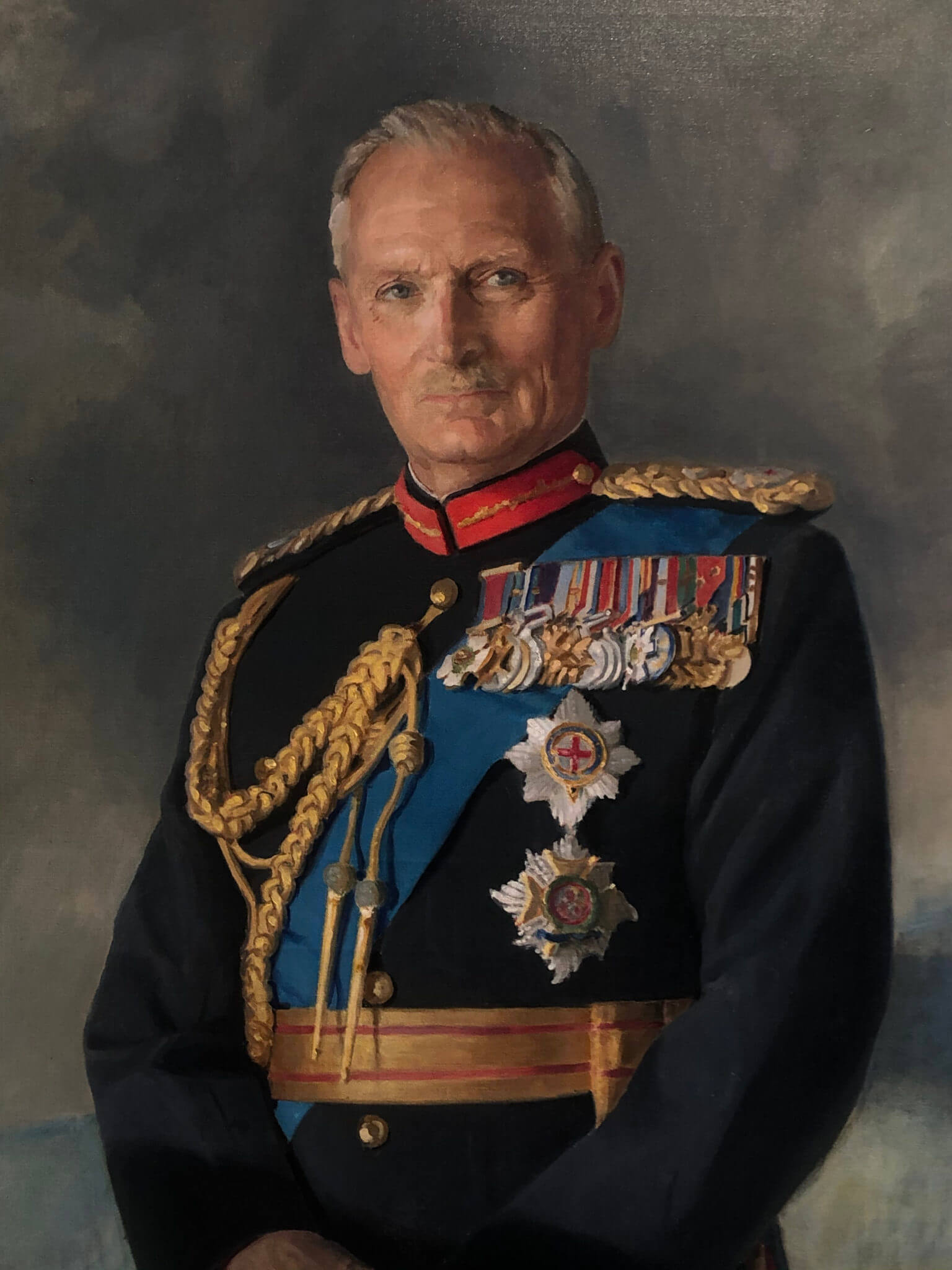

If ‘Pauline of the 20th Century’ were to be decided by titles, medals and honours, there would be a shortlist of one. It is hard to find an allied country that did not honour ‘Monty’.
A clergyman’s son, who spent some of his childhood in Tasmania with his father as the island’s bishop, Monty appears to have been no scholar during his years at School (1902-06). He did though play for the 1st XI cricket team and captained the 1st XV; despite only being 5 foot 6 inches tall, he relished fierce battles on the rugby pitch. Again at Sandhurst he was no high flyer but played in the Royal Military College, Sandhurst XV.
He saw service through World War 1, was shot through the lung and almost killed near the town of Meteren in Belgium. He received the award of the Distinguished Service Order, for bravery in the battles of 1914 with 1st Battalion, Royal Warwickshire Regiment. While watching the appalling casualties at Passchendale he was convinced that the general staff “forgot that the whole art of war is to gain your objective with as little loss as possible”.
Perhaps because of this, Monty’s trademarks as a commander in World War II became precise detailed planning and the elimination of risk to his men and of defeat. His successes in North Africa and across Europe bear testimony to these characteristics, as do reports of his dealings with other more cavalier generals. He sometimes appears one of the few roundheads and his men loved him all the more for it.
Like many great men he had his vain side, Monty appears to have choreographed the surrender ceremony at Luneburg Heath so it seems like a personal surrender to himself with the BBC summoned to record it. Here is his speech announcing the German surrender 75 years ago.
After World War II, he seems to have relished the role of military senior statesman. He was a governor of the School for many years and told his former liason officer, High Master Tom Howarth, “if you have any trouble with the other governors ring me up and I’ll bring up the heavy artillery. ”
Paddy McCowen (1953-59) remembers a typical Monty visit. “The importance of our 450th anniversary seemed to attract the particular interest of one celebrated old boy – our own Field Marshal. Montgomery came in all his finery to take the salute at the cadet corps annual inspection. He also visited informally a few times to see the boys and as Captain of School I had the pleasure on one occasion to escort him around parts of the school. He was approached in a corridor by a member of staff with Monty’s book of his memoires and was politely asked for a signature. “No way” – a rather brusque refusal was his reply.
I was also present in the High Master’s study when Monty suggested seriously to Gilkes that the huge portrait of himself which hung in front of us would be much better placed in the Main Hall, so that boys could admire the painting every day at assembly. Not a modest man.”
Monty’s views on a more liberal society do not make easy reading half a century later. He spoke out against the legalisation of homosexuality arguing that the Sexual Offences Act 1967 was a “charter for buggery” and that “this sort of thing may be tolerated by the French, but we’re British – thank God”.
Montgomery of course is foremost among Pauline soldiery of the 20th Century. It was in the Lecture Theatre of St Paul’s School, on 15 May 1944, that he gave his final presentation of his grand plan for reinvading German-occupied Europe, Operation Overlord, to an audience including King George VI, Prime Minister Winston Churchill and Supreme Allied Commander US General Eisenhower. Maps used in the planning still hang in the Montgomery Room. Other Paulines have societies named after them but Monty has a room.
His record choices when in conversation with Roy Plomley on ‘Desert Island Discs’ in 1969 can be described as ‘interesting’ but perhaps his choice of book, his own “The History of Warfare” tells us more about the man.
Battle Hymn of the Republic
My Love is Like A Red, Red Rose
You are my heart’s delight (from The Land of Smiles)
Invitation to the Dance
Sei Nicht Bos (from Der Obersteiger)
All Through the Night
Cockles and Mussels
O, for the wings of a dove (from Hear My Prayer)